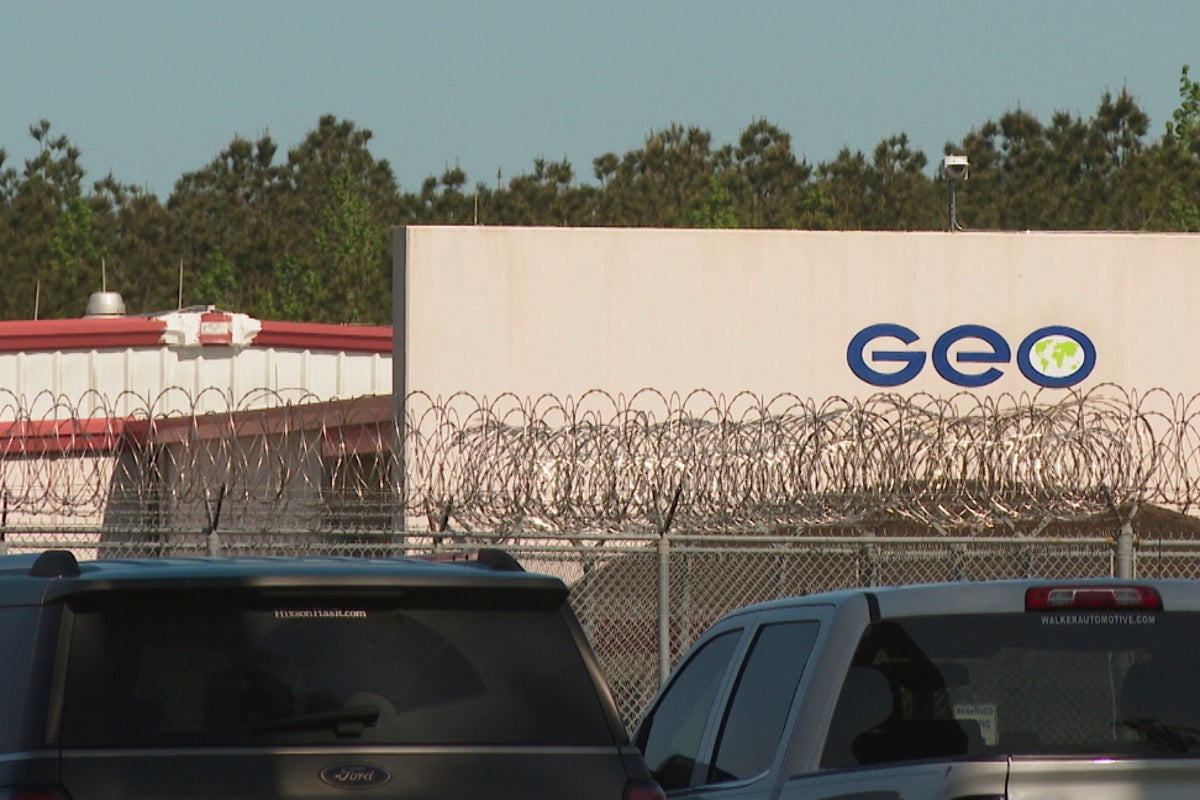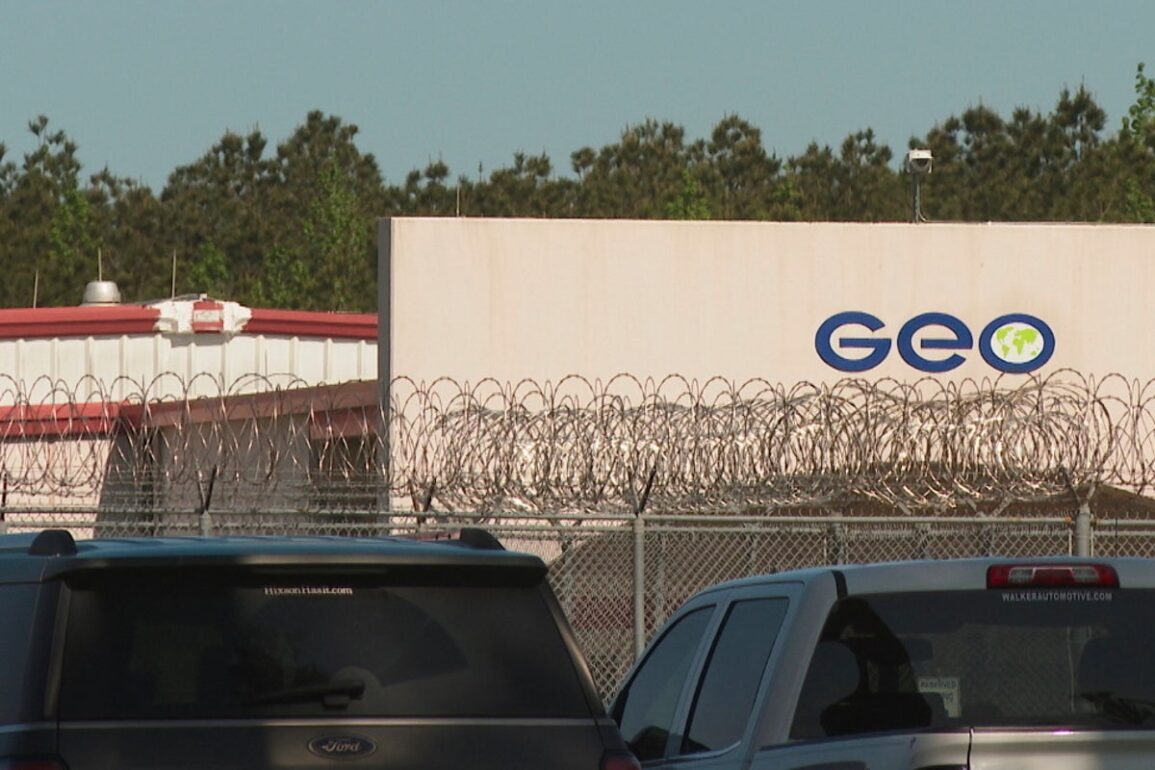
Columbia University graduate Mahmoud Khalil was arrested in his apartment building, sent to a New Jersey detention center and then flown to a facility in Louisiana. Tufts University doctoral student Rumeysa Ozturk was on her way to dinner with friends when she was arrested, moved to facilities in New Hampshire and Vermont, and then sent to another Louisiana detention center. Georgetown University Badar Khan Suri was shipped to a facility in Texas after spending three days in yet another Louisiana detention center.
A series of high-profile arrests targeting international student activists and academics for their Palestinian activism — and decisions from Donald Trump’s administration to detain them hundreds of miles away in remote prisons — have renewed scrutiny into a sprawling network of facilities plagued by reports of abuse and neglect.
Fourteen of the 20 largest Immigration and Customs Enforcement detention centers in the United States are in Louisiana, Mississippi and Texas, across the nation’s “deportation alley.” The jails — most of which are operated by private prison companies — hold thousands of people each year.
More than 7,000 people are jailed in Louisiana’s immigration facilities. Texas detention centers are holding more than 12,000.
“I met a lot of people who are just like, ‘I can’t be here. I’m willing to give up. Just deport me as fast as possible,’ because it’s so bad,” according to Mary Yanik, co-director of the Immigrants’ Rights Law Clinic at Tulane University in New Orleans, which provides legal aid to detainees, migrant workers, children and other immigrants.
“They can’t stand being confined. They’re supporting family members, and they’re worried about every day that they’re in that facility, they’re not able to provide for their family,” she told The Independent.
“It feels like the way the system works — locking them up so far away in a really remote area where it’s hard for them to get a lawyer, the courts are generally hostile, even to meritorious claims — it’s made so that people give up even when you know they may have the ability to stay,” she said.
Government lawyers have argued in court filings that scholars were transferred to these largely rural facilities because there wasn’t enough room in detention centers closer to where they were arrested.
Khan Suri’s lawyer said his client was sleeping on the floor in his Texas jail. He later moved to a mattress — in a common space.
Attorneys and immigrants’ rights advocates argue the administration appears to be “forum shopping” to keep these cases within the jurisdiction of conservative courts, including the Fifth Circuit Court of Appeals, a notoriously conservative federal appellate court in New Orleans.
“ICE likes to keep people in the Fifth Circuit because they know that’s the most favorable circuit for them in terms of litigation,” according to Kerri Talbot, executive director of immigration advocacy group Immigration Hub. “They’re forum shopping, and it’s just an easier location for them, politically.”
Unlike federal district judges, immigration court judges operate under the direction of the U.S. attorney general in a largely opaque system separate from federal courts.
The facilities are also hours-long drives away from cities where there is more likely to be legal counsel available to them — which is not guaranteed in immigration proceedings.
“These are legal deserts,” according to Jennifer Ibañez Whitlock, senior policy counsel at the National Immigration Law Center.
“There’s the demoralizing aspect of being sent so far away from everything, in facilities that have long records of abuse practices and conditions,” Ibañez Whitlock told The Independent. “Sending these students to these facilities dramatically decreases their ability to ultimately make it through to the other side of their cases.”
The cases heard in these detention centers are also less likely to result in relief. Inside the Central Louisiana ICE Processing Center in Jena, Louisiana, where Khalil is jailed, more than 78 percent of asylum cases are rejected, compared to a national average of roughly 58 percent, according to immigration data from the nonpartisan TRAC research group.
Government orders for removal from the country are one way to push detainees to “give up on their cases,” Ibañez Whitlock said.
“I can’t tell you how many, out of all those facilities, there have been some strong, compelling asylum cases where people have just given up and taken an order because they don’t want to spend another day in one of these facilities,” she told The Independent. “Even in the most well-run facilities, you still are putting an enormous amount of pressure on somebody to consider, ‘is it really worth it to continue fighting my case if I’m going to have to do it inside a detention facility?’”
Khalil is jailed with more than 1,000 people inside the facility. He is roughly 1,300 miles from New York City, where he lives with his U.S. citizen wife, who is imminently expected to give birth.
On April 11, assistant chief immigration Judge Jamee Comans determined Khalil, 30, can be deported from the United States based on the Trump administration’s determination that his Palestinian advocacy poses a threat to U.S. foreign policy.
Ozturk, 30, has repeatedly experienced asthma attacks inside the South Louisiana ICE Processing Center in Basile, where she has been detained since late March. The Trump administration’s only evidence against her is an op-ed she co-authored for a student newspaper that criticizes Israel for its campaign in Gaza.
Ozturk wasn’t allowed to go outside during her first week at the facility, she wrote in a sworn statement to the court.
She shares a cell with 23 others. The conditions are “unsanitary, unsafe, and inhumane,” and doctors and nurses are “rude and uncaring,” she wrote. A nurse removed her hijab without asking, she said.
“None of us are able to sleep through the night. They come into the cell often and walk around triggering the fluorescent lights. They shout in the cell to wake up those who work in the kitchen around 3:30 a.m.each day,” she writes. “If we need hygienic supplies like toilet paper, we may not get it until 18 hours later, depending on the officer.”
It took at least 15 minutes for a woman to get medical attention after she fainted when she was hit in the head with a metal tray, she wrote. She said she has not been provided a prayer rug or Quran.
“I pray everyday for my release so I can go back to my home and community,” she wrote.
She is hoping to be released to finish her PhD program and present at a conference this spring. She’s afraid she won’t be able to teach a summer class for high school students.
“I want to return to Tufts to resume all of my cherished work,” she wrote.
During the first Trump administration, ICE expanded the nation’s immigration detention system by more than 50 percent, with contracts for private companies to operate at least 40 new detention facilities. Companies including GEO Group, CoreCivic and LaSalle Corrections own or operate facilities jailing the majority of immigrants in detention. All but one of Louisiana’s nine facilities are run by private prison firms.
The federal government receives a discount from private contractors for sending them higher numbers of detainees, creating a disturbing financial incentive to transfer more people into larger facilities, according to John Sandweg, who served as acting ICE director during Barack Obama’s administration.
The Trump administration has also gutted a civil rights office tasked with investigating abuses for both immigrants and U.S. citizens in such facilities.
The Department of Homeland Security’s Office for Civil Rights and Civil Liberties — among the the victims of Elon Musk’s so-called Department of Government Efficiency — was effectively shuttered by Homeland Security Secretary Kristi Noem last month, with its staff of roughly 150 people placed on leave, jeopardizing dozens of open cases and any efforts for detainees to report abuses against them.
Access to legal counsel for the nearly 8,000 people in Louisiana’s detention facilities can be enormously difficult. There are few pro-bono services, no access to the internet, and limited phone use.
Most of the practicing immigration attorneys in the state are in New Orleans. To visit detainees at the Pine Prairie ICE Processing Center, roughly 200 miles from New Orleans, Yanik and students with the Immigrants’ Rights Law Clinic leave by 5:30 a.m. and return as late as 10 p.m. to speak with as many people as possible.
“That is a grueling schedule, if you think about the number of hours for a single visit with a client for a single court hearing,” she told The Independent.
“They feel forgotten. They feel like they’re screaming into a void,” Yanik said.
The most common question among them is “why am I here.”
“They’re so disoriented by what was happening to them, and so confused. At least one person thought they were in Texas,” she said. “‘What is going on? Can’t I just go home?’”
This post was originally published on this site be sure to check out more of their content.









